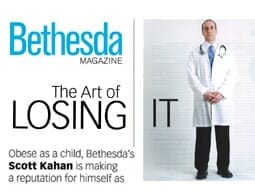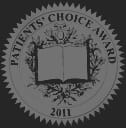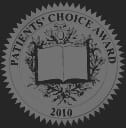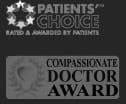NCWW Newsletter
Happy post-Thanksgiving! Here’s some things I’m thankful for right now:
- The end of election season. I can’t remember a more stressful time, both due to the tensions of this unique election, as well as the ongoing stressors surrounding it. The political polarizations will continue, but moving beyond this election feels like an early holiday gift.
- “Operation Warp Speed.” I look forward to digesting the published data once it becomes available, but the early reports suggest impressive vaccine efficacy and safety outcomes. This is also a great example of what is possible when we set our minds and efforts toward shared goals and work together to make them happen. The distribution will be a logistical challenge, but the lessons learned will unquestionably benefit us all, even beyond the vaccines. A decade from now we’ll be discussing all sorts of technologies, treatments, and know-how rooted in the time of COVID.
- The NCWW community. Thanks to our staff for their unwavering positive attitudes and our whole community for continuing to hang in there through it all. Special thanks to Dr. Greer Raggio, who led an ad-hoc support group, Election Stress, that provided a forum for processing the anxieties surrounding the election. She’ll lead the final meeting of the group this Wednesday, in part to celebrate getting through this together.
While it feels like we are nearer to the end of COVID-life than its beginning, there’s undoubtedly quite a while still to go. I hope everyone will continue to be safe and smart as we await vaccinations and other positive developments.
Some important notes about NCWW services:
We continue fully virtual operations, with all services – individual counseling, group sessions, exercise classes, etc – conducted via video- and telehealth. As I have noted previously, we will continue as is for the foreseeable future, until such time that it is prudent to transition back to in-person meetings.
In addition to the standard NCWW groups and classes, please note several COVID-specific offerings that you may find helpful:
COVID and obesity: How much should I worry? (Tuesday, December 8 at 5:30pm): Extensive attention has focused on risks for COVID, including those associated with excess weight, and the media reports and social media blurbs paint a confusing picture of what to believe. This seminar will review what we know about the COVID infection and COVID-related disease, with a focus on the relationships between weight and COVID. All current and prospective NCWW patients are welcome to attend, but capacity is limited so if you haven’t already signed up please let us know asap.
Coping with COVID (Tuesdays at 5:30pm): Despite the outpouring of resources to help us manage our lives during the pandemic, there are specific challenges for those of us who are also working hard to maintain a sustainable approach to weight management. This group gathers our community to share how we are coping – both with COVID and with weight management – and work together to move forward.
Living Solo (alternate Saturdays at noon): Managing our lives during COVID – especially the physical distancing from our friends, supporters, and communities – is difficult for everyone. Living alone presents additional and unique challenges. This group gathers those who are single and/or living alone to support one another and work together to navigate these unique times.
Feeling Strong…for Every Body (Thursdays at 4:30pm): Feeling strong is important for body and mind. Designed so that no prior experience with exercise is necessary, this 45-minute, guided, gentle, online exercise class is helpful for 1) those who are new to basic strength training, and 2) those who have had a hard time adjusting their exercise plan during COVID and would benefit from a re-introduction to gentle, at-home strength training and fitness exercises. Exercises can be done with bodyweight alone, with light weights (such as a dumbbell or resistance band), or using household items (such as a soup can).
Additionally, our wonderful nutrition experts will be holding a short workshop on Saturday, December 12th at 2:00pm: Celebrating the Season, in which attendees will work together (virtually, of course) to learn how to conveniently and inexpensively make personalized food gifts to share with friends and family.
You can find descriptions of additional psychology, support, mindfulness, and yoga classes on our website. And please contact us if you’d like to receive the updated class schedule each month.
Lastly, we are recruiting for several new groups:
- Working Women: This private group focuses on the unique experiences, tensions, needs, and obstacles facing women who are managing multiple life demands, such as busy careers, relationships, families, etc…all on top of the ongoing challenges of weight and health management.
- Long-term Weight Maintenance: In addition to our ongoing class focused on helping those who are building skills in anticipation of maintenance, this new group is specifically aimed at those who are actively working to maintain lost weight (or other behavioral changes). While making behavioral changes and losing weight is rarely easy, most people find that maintaining healthful behaviors and keeping weight off over time is often more challenging. In part, this is because during maintenance we are no longer buoyed by the reinforcing reward of the scale going down. This group guides you through the skills and perspectives relevant for long-term behavioral and weight maintenance, including the unique differences between short- and long-term motivations.
- “Gut” Health: We have received several requests for a workshop focused on how health behaviors can impact the digestive system – and how the digestive system may impact our health behaviors and overall health and wellness. With contributions of several of our staff members, this workshop will explore these and other gut-related topics from the perspectives of nutrition, mindfulness, and medicine.
These groups will kick off once we’ve reached a critical mass of attendees, so please let us know if you are interested in participating. And if you have ideas and interest for other sessions, please feel free to let us know.
Happy holidays to all,
Scott









